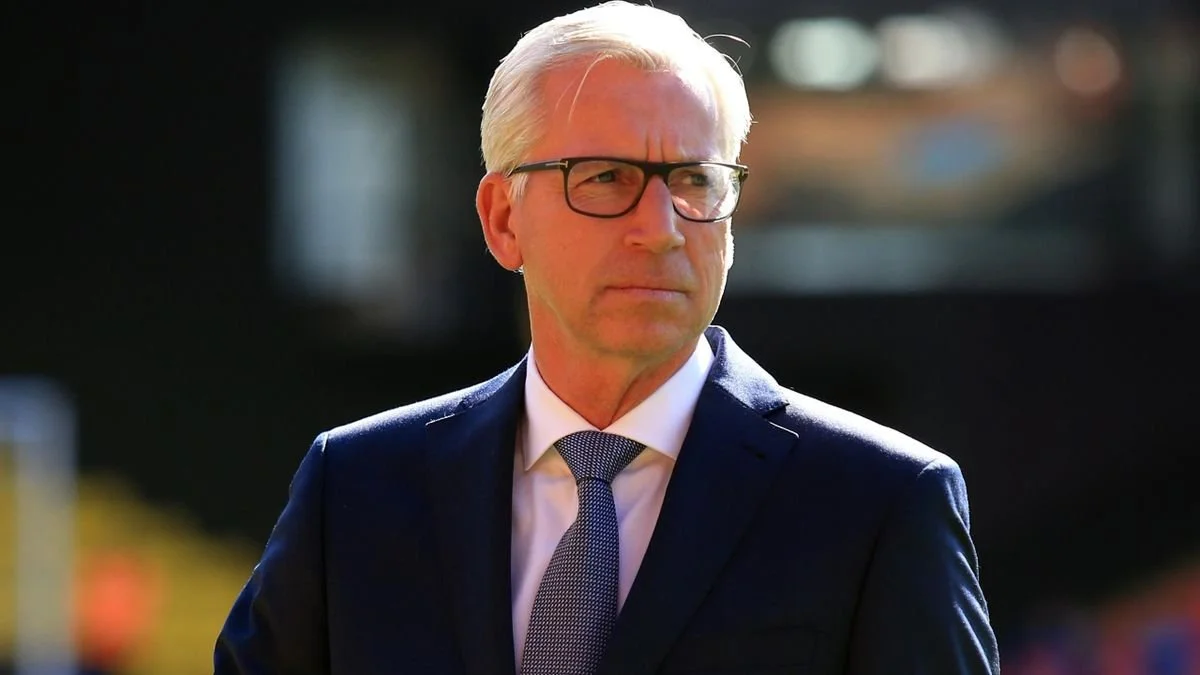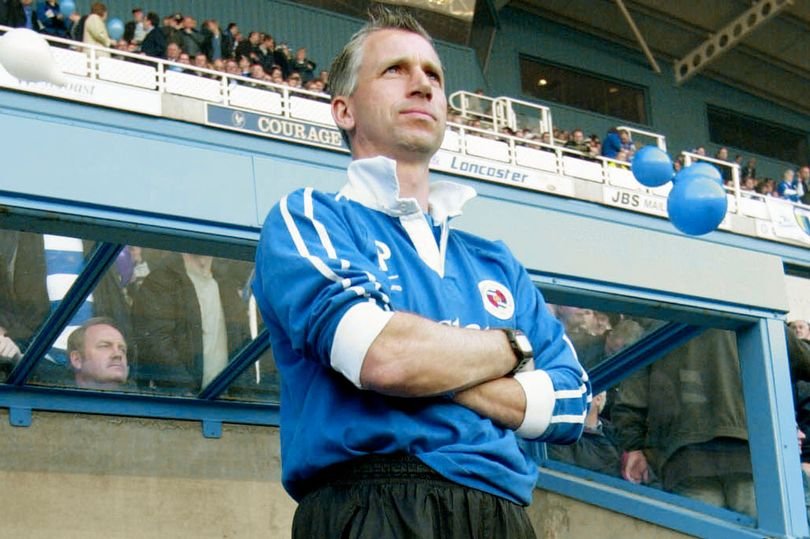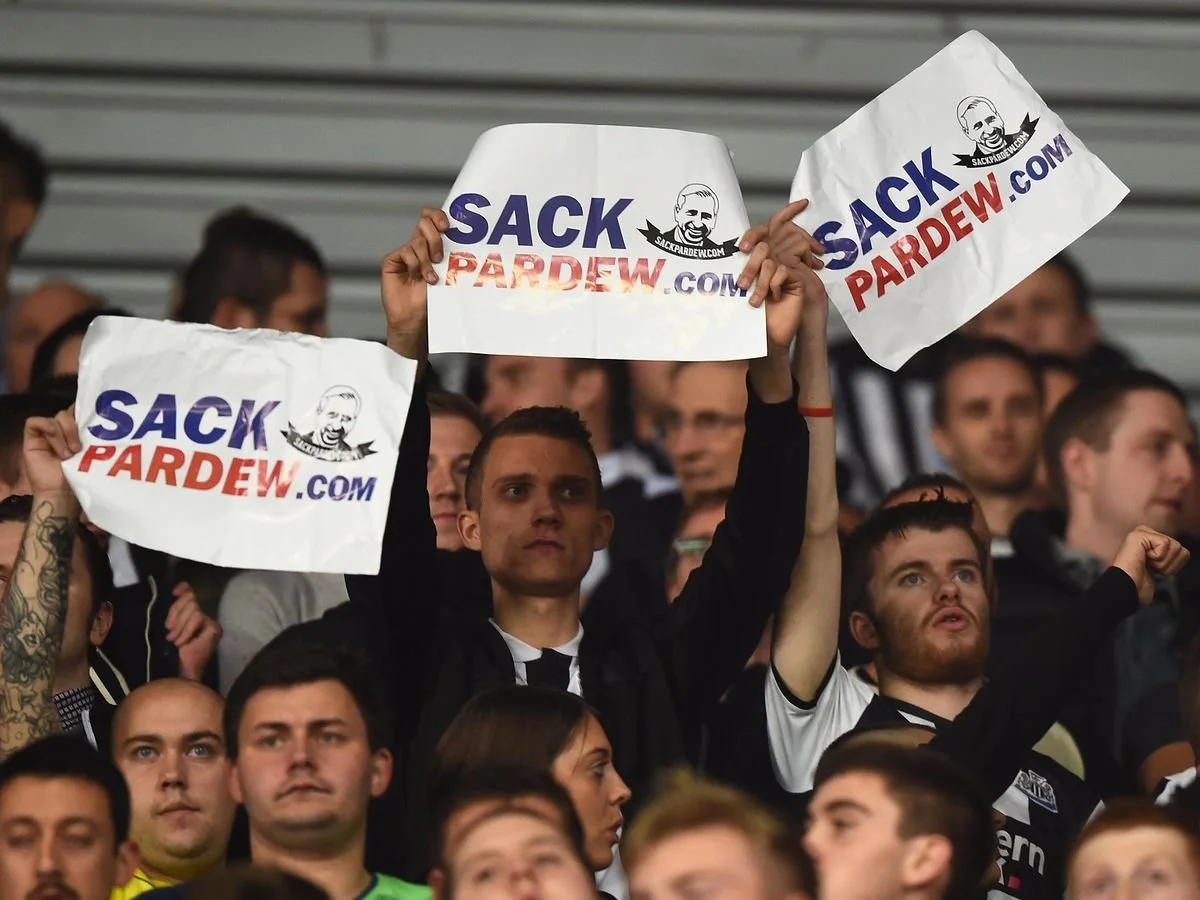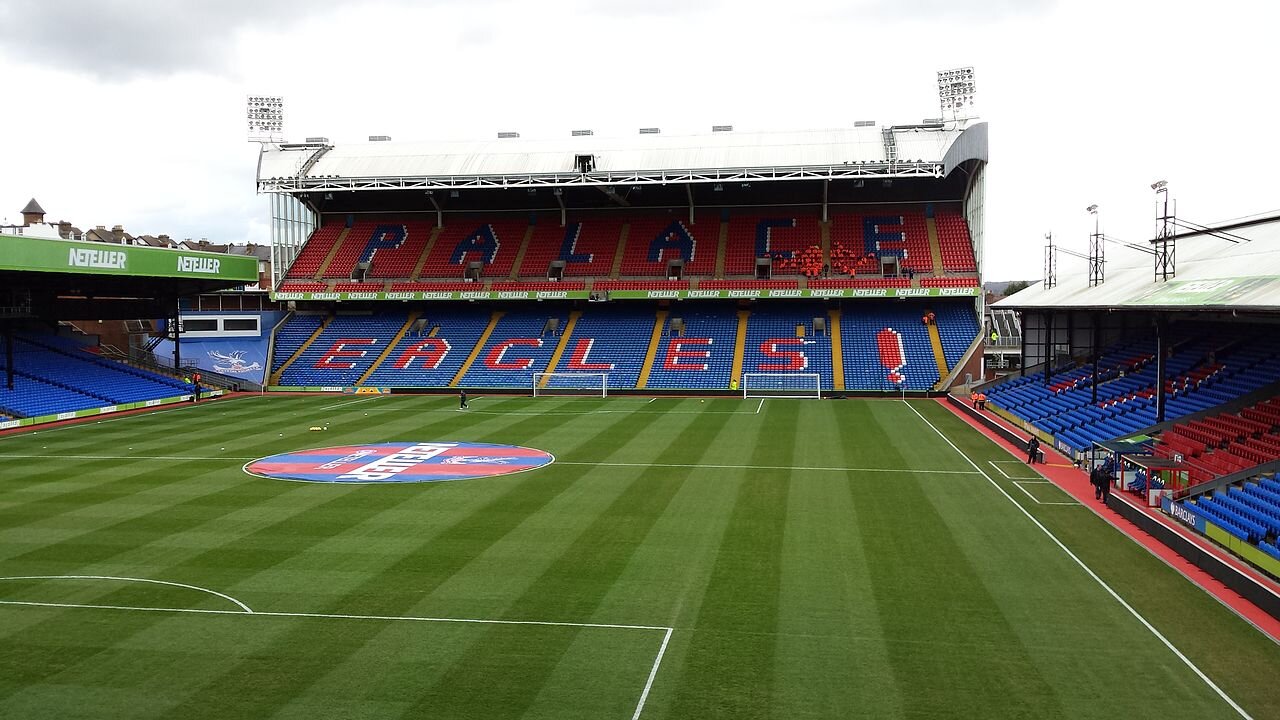Alan Pardew...On second thoughts
It would be a misstep to say Alan Pardew polarises opinion. Alan Pardew is not a marmite figure. Alan Pardew is almost universally regarded as something of an incompetent, hubris inflated joke. Best remembered for lurid tabloid exposes of his personal life, his arrogance, doomed FA Cup final dancing and being hounded out by irate fans from a series of clubs.
To look more closely at Pardew’s career reveals at puzzling paradox at the heart of this view. An objective observer studying his record could, dare I say, notice that Pardew lay the third tier seeds for the eventual flourishing of two premier league clubs and oversaw the most successful period in many years for another three. This leads to an uncomfortable question. Is Alan Pardew the best English manager of the 21st century?
Alan Pardew’s managerial career started at Reading. Pardew did not have the kind of illustrious career where he could walk into a managerial job, he did not turn professional until he was aged 26. Pardew has talked of working as a builder where he would work from 7am until 3pm. Then drive to Yeovil to play non-league football, before turning round after the game to get in at 1am and work the next day. When Pardew did finally gain a professional contract he was forced to take a pay cut compared to what he had been earning. As his career wound down Pardew became a player coach at Barnet under manager Terry Bullivant. When Bullivant departed to join second tier Reading in June 1997 Pardew followed him. Bullivant resigned on 19th March 1998, with the club mired in the relegation zone. Pardew was briefly handed the job as caretaker before Tommy Burns took the job on 25th March. Pardew was kept on the following year as reserve team manager after Reading were relegated. When Reading failed to get promoted the next season and began 1999/00 with 4 losses in their first 6 league games, Pardew was again handed the reigns as caretaker manager. This time Pardew was given time and was able to impress the club enough to be appointed as permanent manager and subsequently steered the Royals clear of relegation into a comfortable 10th place. Reading further improved in the 00/01 season, reaching the playoff final which they lost. Undeterred Pardew achieved automatic promotion the next year and followed that up with an impressive 4th place in the second tier, culminating in another loss in the playoffs.
This turnaround in Reading’s fortunes by a young manager was enough to impress newly relegated West Ham who started their season poorly. Building on Pardew’s work, Reading were eventually promoted to the top division for the first time where they spent three non consecutive years. In 2003/04 Pardew was able to guide West Ham to yet another playoff final defeat. By the start of the next season, supporters began to get restless after mixed results but he steadied the ship enough to reach a second successive play off final. This time Pardew prevailed and he had reached the premier league, only five years and two promotions after starting his career in a third tier relegation battle.
The following season Pardew guided West Ham to a respectful 9th place. West Ham also reached their first FA Cup final in 26 years only to be undone by Steven Gerrard’s improbable last minute winner and the pain of a penalty shootout defeat. At this point Pardew was one of the brightest young managers in the English game. Within two years however his reputation was in tatters and it was assumed the top level had seen the back of him as a manager. After the controversial signings of Argentinian superstars Carlos Tevez and Javier Mascherano, West Ham struggled at the start of the 06/07 season. West Ham were taken over by an Icelandic consortium on 26th November and with the club languishing in 17th position one of the new ownerships first acts was to sack Pardew. On Christmas eve Pardew quickly got back onto the managerial horse and accepted the rescue job at Charlton who were in 19th position. Pardew was the third manager of a chaotic season following the summer departure of long standing manager Alan Curbishley and was unable to save them despite an upturn in results . Charlton never looked like being promoted back to the premier league the next season. When they started 2008/09 poorly fans turned on Pardew chanting ‘We want our club back.’ As Charlton slipped into the bottom three Pardew left the club in December 2008.
Pardew’s career had nosedived alarmingly. In the summer 2009 Pardew was back where he started in the third tier with Southampton. To make matters worse Southampton started the season with a ten point points deduction due to the financial issues that had dogged the club. Despite this Pardew was able to guide Southampton within one place and seven points of a playoff place. He also clinched victory in the 2010 football league trophy. Pardew signed Rickie Lambert and Jose Fonte who were to prove key to Southampton’s long term resurgence. Pardew was however sacked in August after rumours of fallings out with key players and the clubs owner. After Pardew left Southampton achieved successive promotions to the Premier league and in 13/14, still featuring several Pardew players finished in 8th place.
From here Pardew’s career took an unexpected turn. In December 2010 Pardew was appointed as manager of newly promoted Newcastle . It had been assumed Pardew’s career as a top level manager was over at this point so this came as an unpleasant surprise to the Newcastle fan base. Only 5% of fans polled by Sky Sports were in favour of the appointment. Pardew had replaced popular manager Chris Hughton and to make matters worse Pardew was rumoured to be friend and stooge of hated owner Mike Ashley. Pardew denies this stating ‘I didn’t know him before I got the Newcastle job but that rumour never left.’ After continuing the steady work of Hughton to finish 12th, what happened next season was remarkable. Helped by clever scouting and exploitation of the French market, Pardew guided Newcastle to 5th place in the premier league. This was enough to earn him both LMA and Premier league manager of the year, the only time this has been achieved by an English manager. As a result Pardew was handed an infamous 8 year contract with the club hoping to ‘emulate…clubs like Manchester United and Arsenal. Sir Alex Ferguson and Arsene Wenger have shown that stability gives you the best platform to achieve success.’ Against all odds Pardew was back. Pardew however talks of feeling alarmed that Newcastle fans ‘took this for granted’ and felt ‘this was where they should be’ despite a small transfer budget. Newcastle stuttered to 16th place the following year, although they did reach a Europa League quarter final. Newcastle rallied as they began the 13/14 season and Pardew was awarded the November 2013 manager of the month award. As 2013 moved into 2014 however Pardew’s side embarked on one of the collapses in form he became famous for, as Newcastle lost 15 of the last 21 games. In the final game of the season Pardew was subject to personal abuse described in the Newcastle chronicle ‘as arguably the worst personal abuse a Newcastle manager has had to endure at any game. It was an excruciating afternoon for all concerned’. Pardew was given the chance to lead the club into the 14/15 season but by now fans were in open revolt and the relationship was beyond repair. Protests were held involving the distribution of 30,000 A4 sheets calling for his sacking and the website sackpardew.com was born. Subsequently Newcastle’s form improved and Pardew was again awarded the manager of the month award of November 2014. When the opportunity to manager his old club Crystal Palace was given in January 2015 Pardew jumped at the chance having felt his spirit being ‘banged down’ by the constant criticism. He left Newcastle in 9th position. After his departure Newcastle’s form nosedived, losing 12 of 18 games and only narrowly avoided relegation on the final day of the season. The following season Newcastle were relegated. Pardew himself feels that ‘the fans 100% linked me with Mike Ashley…it didn’t matter if I finished sixth that year, the fans were not accepting me.’
While Pardew had escaped the hatred at Newcastle he found himself in a perilous position at Crystal Palace. Having been let down by Tony Pullis resignation on the eve of the season Palace were in the relegation zone when Pardew arrived. Playing what Pardew described as ‘maverick’ football making use of wingers Wilfried Zaha, Yannick Bolasie with Jason Puncheon moved into a central role, Palace surged up the table. Palace finished 10th, their highest ever premier league position and most successful for 24 years. Pardew became the first ever Premier League manager to take over a club in the relegation zone after the new year and finish in the top half. Given Newcastle’s decline in form the Daily Mirror somewhat cheekily opined that ‘ "Pardew has a legitimate claim to keeping two teams up this campaign" with Newcastle "staying up on the final day of the season – surviving really only on their early season form"
Palace made a blistering start to 15/16 and as Christmas approached were in 5th place. With Roy Hodgson expected to leave the job after the coming summer’s European championship, Pardew was touted by the press for the England job with increasing seriousness. Once again a Pardew team suffered a crisis of form, as Palace slipped to 16th place in the second half of the season. This was however someone tempered by a run to only their second ever FA Cup final. As in 2006 Pardew was minutes away from victory before Juan Mata equalised on 83 minutes and ten man Manchester United grabbed an extra time winner. The final will always be remembered however, for Pardew’s endlessly gifable half Dad dance/half Mick Jagger strut after Jason Puncheon scored what he hoped had been the winning goal.
After this final Pardew’s career never recovered. Palaces poor league form continued into 2016/2017 despite big summer investment. Palace’s defence crumbled into disarray including a bonkers 5-4 defeat to Swansea in November. Pardew was sacked in December 2016 after winning only 6 out of his last 36 league games. Palace owner Steve Parrish stating Pardew's "expansive style of football hasn't worked", and, ‘Now we're going to wind the dial back the other way.’ Pardew had left Palace just outside the relegation positions in 17th place. From here, Pardew went on to an unsuccessful spell with West Brom in 2018/19, where he formed the middle portion of a three managerial relegation sandwich. This was followed by a bizarre spell in Holland. Now it seems Pardew’s career is truly over aged only 59.
Why then is Pardew such a maligned figure? It is not overly charitable to ascribe Pardew a role as the founding Father of an extremely successful revolution at Reading. While Pardew’s legacy at Southampton is contested, he secured a trophy and helped build some of the foundations for a quick rebuild of the club. Pardew took West Ham languishing in the second tier to what is still arguably their best season since 1986 in 2005/2006. At Palace he saved a team sleepwalking to an inevitable relegation and guided them to their second highest league position ever and only their second major Cup final of any sort. By pure metrics Pardew is the second best Palace manager of all time after his mentor Steve Coppell. While Newcastle experienced relative glory years from the mid 90s to early 2000s under Kevin Keegan and Bobby Robson, nothing has come close to Pardew’s 5th place since Robson left in 2004. Yet with the exception of Reading, Pardew is at best ridiculed and at worst hated by a majority of fans at all these clubs. The Newcastle fans behind the sack Pardew campaign stated ‘“We see it as a very dark period in the club’s recent history. There was one decent season in there, followed by two absolutely dismal ones, but the wider context of the damage done to the club over the longer term is more important.’ Even Palace supporters were forced to conclude, as popular fansite HLTCO put it ‘The Geordies were right all along.’
When put in comparison to his English contemporaries this century Pardew’s record is evern more impressive. Pardew accounts for 1/4 of all English managed FA cup finals of the 21st Century, 50% of the Premier league managers of the year, is the only English man to achieve the LMA and Premier league managerial double ever and has the third highest league finish for an English manager since 1999. While periods at West Brom and Charlton were certainly failures Pardew’s record should hold up to scrutiny.
Perhaps the answer lies in what Gianluca Vialli identifies in his 2006 book the Italian job. In contrast to the rest of Europe in England managers are quickly written off after an unsuccessful spell and never expected to be seen again. Vialli calculates that in Italy 50% of managers are given a second chance after a failure. In England the figure is just 24.7%. ‘After the manager in question is sacked he is viewed as damaged goods.’ Pardew’s mid career Lazarus act goes against the convention in England where managers do not come back after a failure. English football is relatively speaking, a place where huge damage is done to one’s reputation very quickly. This was of course not helped by the manner in which his rehabilitation occurred. Pardew was plucked from his exile by unpopular Newcastle owner Mike Ashley in what appeared like nepotism. Pardew never managed to shake off the perception that he should not have been allowed to return top level football after 2010. Pardew however for all his faults is a fighter. Having waiting until well into his mid 20s to turn professional, he would not have given up and viewed his managerial exodus in this manner. Nevertheless Newcastle is a club whose emotion rightly fascinates the media and in the midst of a turbulent period for the club Pardew became a lightning rod for frustration which was able to spread across the country.
It can also not be denied that Pardew has a habit of rubbing up people the wrong way. Pardew can present as a smarmy, arrogant manager best encapsulated by his FA Cup final dance. He has a habit of getting himself into scrapes which does not endear himself to the wider football public or his own fans. As a club photographer West Ham put it ‘I don’t think I’ve ever known a more arrogant person in my life.’ The same photographer tells a tale of Pardew swapping dinners with his fitness coach and remarking ‘‘When you’re the King, you can do anything.’ Then of course there are the long spells of poor form which are a breeding ground for fan discontent. While the popular wisdom is that once he is in one of these ruts he struggles to escape, his experiences at West Ham and Newcastle show that given time Pardew can work his way out of a rut. The Pardew experience can be roller coaster and without the connection to the fans this quickly leads to the issues he has encountered and the subsequent damage to his reputation.
Alan Pardew probably isn’t the best English manager of the 21st Century. Harry Redknapp taking Portsmouth from the second tier to an FA Cup, win followed by guiding Spurs to a Champions League quarter final trumps Pardew’s close brushes with glory. Nevertheless Pardew’s has a track record, that, for the last twenty years at least rivals any other English manager. By my rough calculations Pardew has had 4 spectacular seasons, 5 good seasons, 4 average seasons and 3 bad seasons. With Pardew you are more likely to get a spectacular or good season than a bad or average one. While Pardew is not as steady as a manager such as Sam Allardyce and there is some risk of a bad season, there is also the tantalising prospect of the spectacular. Pardew patently deserves far more credit than he is given and if you can’t agree with that perhaps you can agree with this. He is rarely boring.
Ben Jones, The Left-sided Problem
-
On this day in 2001, Zinedine Zidane signed for Real Madrid. This transfer is just one reason why the 2001/02 seaso… https://t.co/bI2J6AT97K
-
Little quiz question…who were the last team (and when) to reach a European Cup/Champions League final and not play… https://t.co/4bZlA9KYHH
-
16 years since this game. Not sure there has been a tournament match like it since, two top class teams, playing at… https://t.co/gbpaqAQ8Qj






